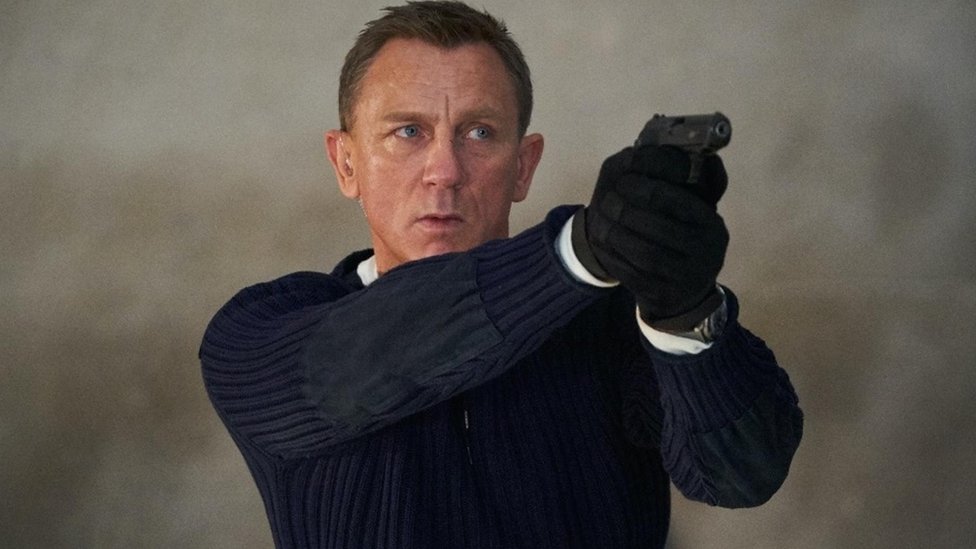
Most of the year's proposed blockbusters - films with a budget of more than £100 million - are on hold.
The James Bond film No Time To Die has been postponed twice; Disney's live-action Mulan was released on the studio's streaming platform; and Top Gun: Maverick is still riding a motorbike to nowhere.
Even Marvel films such as Black Widow - reliable stalwarts of the summer event season - have been pushed back indefinitely, as studios wait for a return to normality.
But while screen heroes can't currently save the world, they may still be able to save the big screen experience, says Screen International's chief film critic, Finn Halligan.
"It's like we've been having a staring contest," she says, of the stand-off between film studios and cinemas. "Someone's got to blink."
A small sign of eye movement came with recent news that Wonder Woman 1984 would be released simultaneously at both US cinemas and online, on Christmas Day 2020.
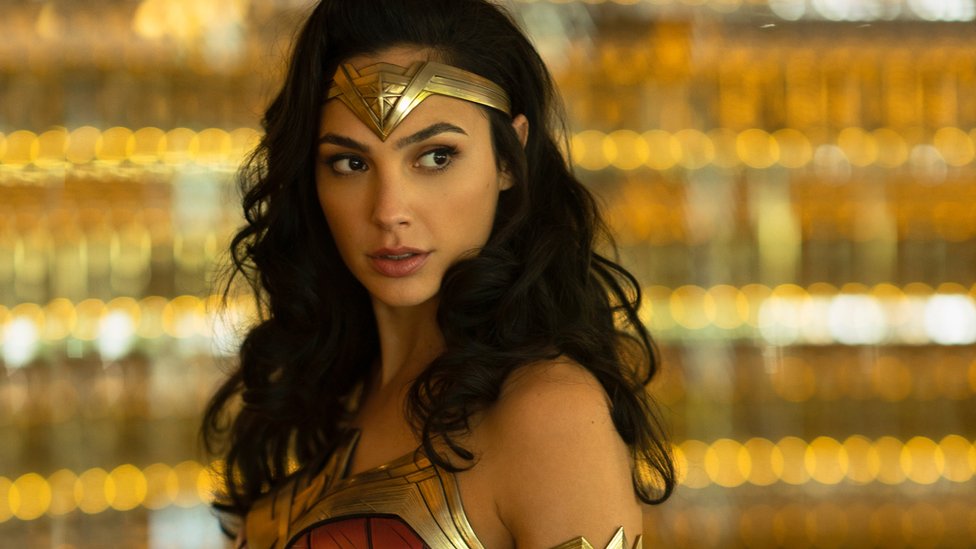
The film, which plunges Gal Gadot, as the returning superhero, into an '80s universe, cost around £145m ($US 200m) to make. Originally scheduled to open in June, its release has already been delayed twice.
"The studios haven't wanted to sacrifice any potential billion-dollar movie during the pandemic," explains Halligan. "They're too much of a valuable commodity."
But the longer cinemas remain shut, the harder these decisions become.
'Crunch point'
Last year, nine films made more than $1bn at the global box office - including The Lion King, Joker, Avengers: Endgame and Captain Marvel.
Fast forward to summer 2020, and Christopher Nolan's Tenet - a film with a budget of $205m (£150m) - was the only mega-budget movie to be released in cinemas, grossing around $350m (£270m).
"The profits of Tenet spooked them, although I don't think it did badly in the circumstances," says Halligan.
"Studios still hope they can get the numbers, but the crunch point isn't the future existence of the blockbuster, the stress point will be the cinemas themselves.
"Will audiences feel safe to come back for a new Marvel film in the cinema, or wait for it on Disney+? And how long can cinemas survive in this situation?"
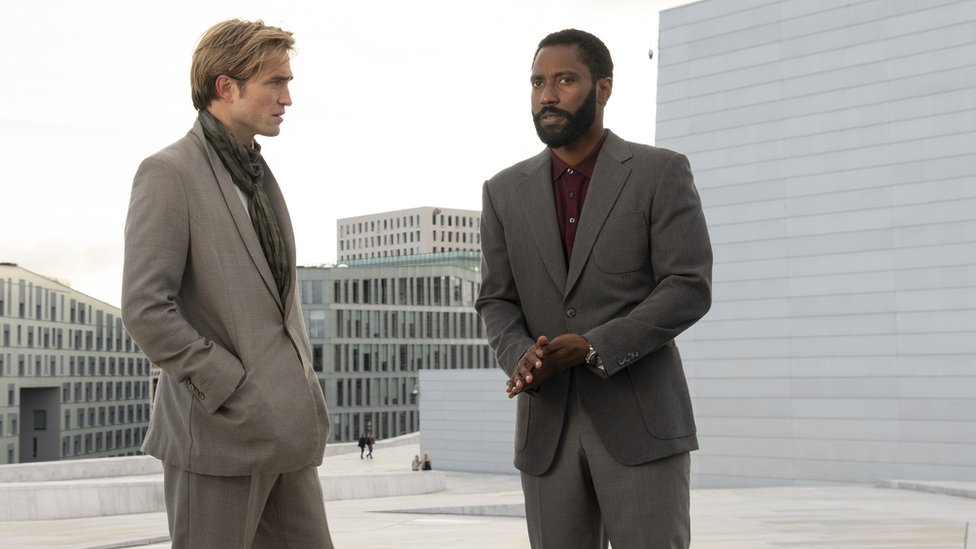
However, Asia may already be pointing the way towards a movie-going recovery. Wonder Woman 1984 will have a full theatrical release in China a week before the film is released in the US.
Up until now, Hollywood has refused to show its biggest movies first to audiences in Asia, Australia and New Zealand - where many cinemas are open again - partly due to piracy fears.
It's also significant that China is behind 2020's biggest blockbuster so far - Hu Guan's war epic, The Eight Hundred, about a group of Chinese soldiers under siege by the Japanese army. It made $468m (£345m) at the box office.
"2020 is the year that China, not the US, became the world's biggest movie market," Asian film critic Stevie Wong says. "It's surpassed $1.9bn (£1.4bn) this year.
"And without Hollywood movies, local films have had a bigger chance in cinemas," Wong adds, citing the success of Chinese drama My People, My Homeland and Japanese Anime movie Demon Slayer: Kimetsu No Yaiba.
"The Eight Hundred's made close to half a billion dollars, although that can't compare with cinema profits from 2019," says Wong.
"But there are more local blockbusters coming, like Andy Lau's Shock Waves 2 or Daniel Wu's Caught in Time, that should bring in the audiences again."
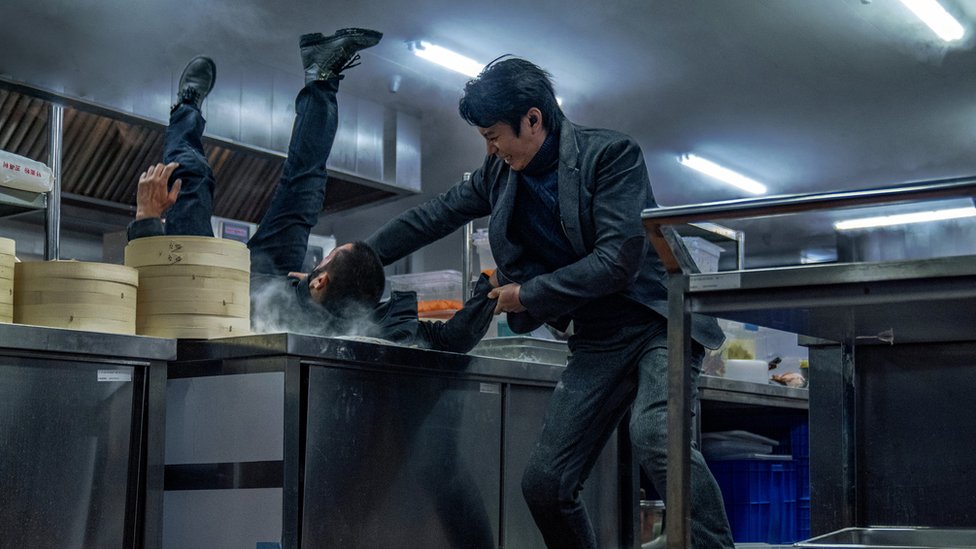
Film traffic between the US and Asia has historically been one-way, to Hollywood's benefit. Yet a Jackie Chan movie, Vanguard, the veteran action star's latest collaboration with director Stanley Tong, has just enjoyed one of the biggest ever North American releases for an Asian film.
The lavish action movie, which was made across five different countries including the UK, India and China, is playing on 1500 cinema screens replacing the delayed Bond film, No Time to Die.
"It was only about eight weeks ago that we acquired the film," explains Nolan Gallagher, the CEO of Gravitas Ventures. "We moved fast."
Gallagher believes that where cinemas are open, audiences are eager to see big-screen action.
"There is a business for blockbusters. Yes, it's only a fraction of what it was before the pandemic, but there's still a box office business," he says.
"People are looking for enjoyment over the Thanksgiving holiday, especially if you're looking for something that's got that globe-trotting action experience to it."
The sight of busy cinemas in Asia have also given hope to Hollywood, according to Mark Gill, President of Solstice Studios, based in Los Angeles. The independent film company has just bought the rights to Gerard Butler action thriller The Plane, which starts shooting in 2021 and is set to be released, in cinemas, in 2022.
"China, Japan and Korea have showed us this year that fundamental movie-going habits haven't changed," Gill argues.
"The film Demon Slayer, which was such a hit in Japan, wasn't necessarily the most sophisticated film ever, but clearly there was pent-up demand for audiences to go to the cinema.
"I think it shows that one good blockbuster can be a real tipping point, if the conditions are right."
Solstice was the first company to release a new film in US and UK cinemas following the first wave of the pandemic.
"We feel that we got into the movie business to show films in cinemas," he explains. "Someone had to go first."
The film in question was psychological thriller Unhinged, starring Russell Crowe.
"Certainly, the box office was less than in normal times, but it was solid. And the reaction from Hollywood was amazement that we pulled it off - and helped us get a lot more movies going."
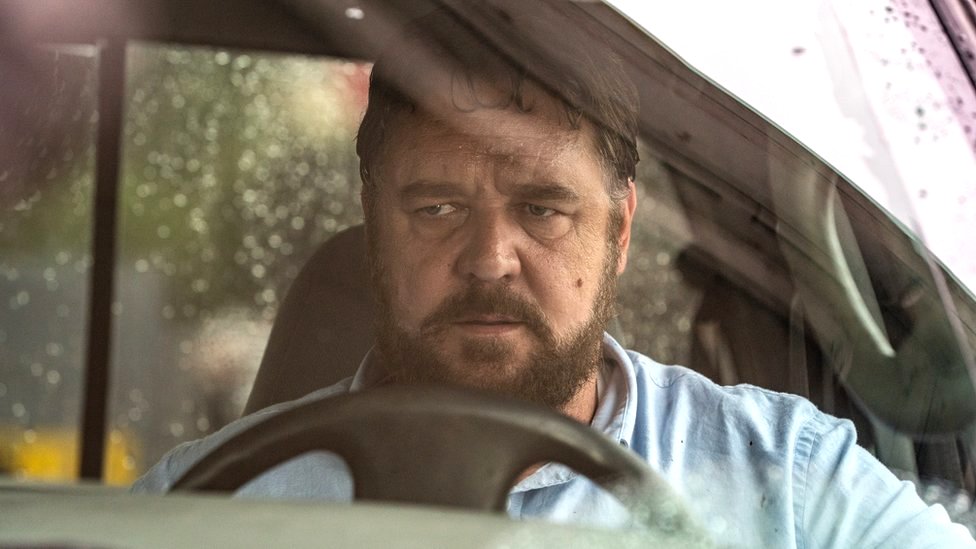
The release plan for Wonder Woman 1984 - which sees Asia, Europe and Africa get the film before is Christmas Day debut in Ameirca - might suggest Hollywood is waking up to Asia's growing self-sufficiency in the blockbuster market.
"It's yet another challenge to Hollywood's way of doing things," says Steven Gaydos, executive editor of content at Variety magazine.
"Asia has a freestanding movie industry making its own films, for its own audiences.
"Hollywood has historically relied on the rest of the world for about 65% of its movie profits. If Asia has a self-sufficient movie industry, they're saying that they don't need Hollywood films - that's a huge blow to the accepted wisdom."
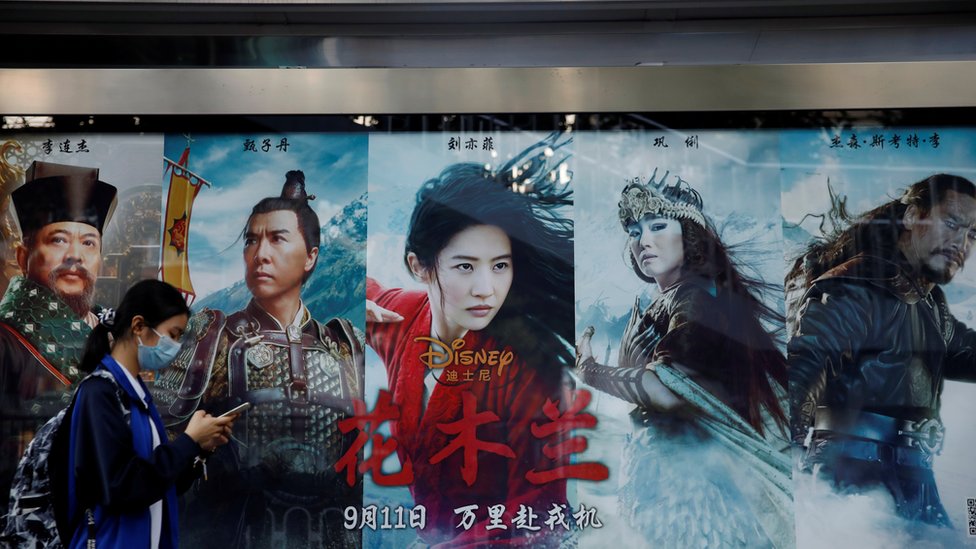
Yet Gaydos believes the behemoth-budget blockbuster is one of the few films guaranteed a future in Hollywood, with budgets unlikely to be cut at the top.
"The blockbuster is going nowhere," he says. "Hollywood makes almost nothing else apart from them - they account for 95% of the box office. These film studios that make them have bet their own future on their continued success.
"These big expensive films are actually better bets than the cheaper movies, as you're pre-selling the spectacular production values and the stellar cast - that's the built-in appeal.
"But the whole world of independent movies and dramatic cinema - basically risky films that won't guarantee a return - was already drifting to streaming services," he adds.
It seems unlikely streaming services will be content to stop there, especially given reports that the makers of No Time to Die were in recent, unsuccessful, talks to put the Bond film on a home entertainment platform.
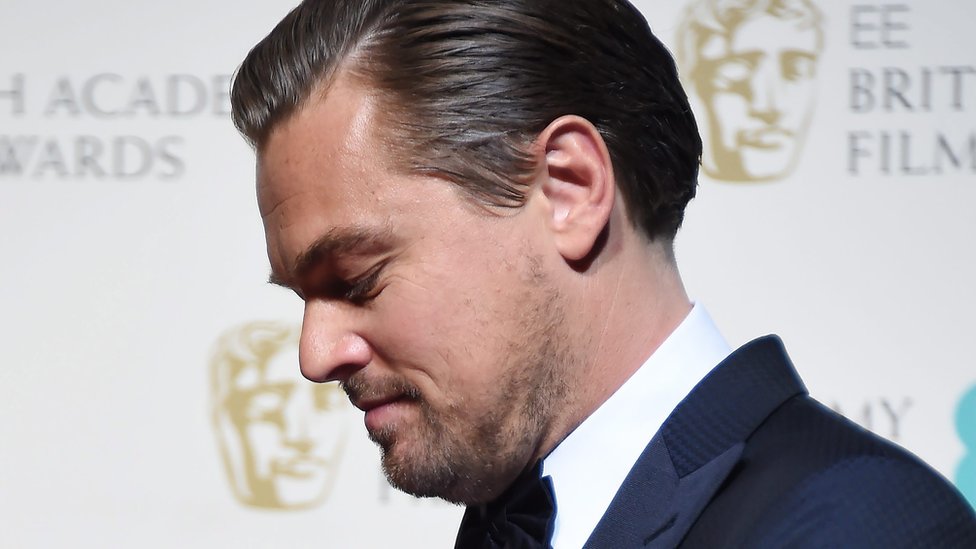
Netflix has just announced that Don't Look Up, a space-asteroid comedy starring Jennifer Lawrence and Leonardo DiCaprio is in production and will premiere on its app.
"Before Covid, in Hollywood, there was a room on fire," Gaydos comments. "The pandemic has poured gasoline on the rest of the house.
"I never expected to wake up and read that Leo Di Caprio - one of the names in Hollywood that can launch a film in cinemas - will premiere on Netflix."
If Wonder Woman 1984 performs strongly, and with reports of successful vaccines on the horizon, 2021 may still save the traditional big-screen blockbuster.
But Finn Halligan warns that studios have to act decisively, bearing in mind the immediate financial plight of many cinemas.
"Film companies should remember if you want to achieve those billion-dollar profits, you'll need a lot of cinema screens on which to show your films."
"Hollywood" - Google News
November 26, 2020 at 07:50AM
https://ift.tt/2V0ubdt
Is the era of the Hollywood blockbuster over? - BBC News
"Hollywood" - Google News
https://ift.tt/38iWBEK
https://ift.tt/3fdiOHW
Bagikan Berita Ini














0 Response to "Is the era of the Hollywood blockbuster over? - BBC News"
Post a Comment